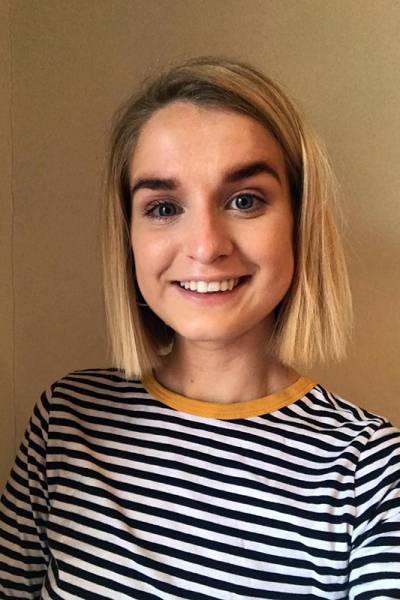Lydia studied the Social Policy and Social Research MSc (class of 2019). She discusses her motivations for studying a postgraduate degree and how the MSc is leading toward her career plans.
Hi Lydia!
Why our Social Policy and Social Research MSc?
At undergraduate level, I studied History at the University of Leeds. I was interested in twentieth-century social, economic and political history in America and Britain. Following my degree, I wanted to learn more about present day society and how events of the past effect today, and therefore believed studying Social Policy and Social Research at postgraduate level would be a natural progression from my previous studies.
What motivated you to pursue a graduate-level qualification?
Once having finished my undergraduate degree, I knew I enjoyed the research element of my course and wanted to pursue this further within a postgraduate degree that would prepare me for the world of work. I was interested in social research specifically, and the MSc at UCL offered a variety of modules that would teach me the practical skills necessary for beginning a career in research and/or policy making.
You're about to graduate (class of 2019). What are your career plans after that?
I am hoping to work for a research agency that partners with governments and large charities, and to work to influence policy-making decisions. Having studied such a specialist and practical course at UCL, I feel confident that my studies have provided a strong foundation for my chosen career path.
Do you think studying at IOE is a good investment?
I think UCL IOE has been a great investment, mostly because of the opportunity it provides for students to work closely with researchers, policy-makers and practitioners. Learning from these experts, and hearing first-hand about their various influential research projects, makes studying a postgraduate degree at the IOE hugely rewarding and inspiring.
“I would recommend studying at IOE to anyone who is interested in education and social science research. The expert staff, learning opportunities and networking links have meant my year at UCL has flown by and has been extremely fulfilling."
Why choose UCL for graduate study?
Firstly, I applied to UCL because I felt my chosen course would provide a holistic insight into both social research and the policy process. The broad range of modules on offer, both compulsory and optional, delved into different research methods, the agenda setting process, the use of evidence in decision-making, and applying theoretical approaches to present-day issues.
Secondly, I applied to UCL because of its world renowned reputation, as well as its location at the heart of the country, having known that I wanted to continue living and working in the capital following the completion of my course.
What do you find interesting about your field of study and what inspires you?
Studying in my field has provided a taster into areas of research that I have previously had little exposure to. For example, having studied an essay-based, humanities subject for my undergraduate degree, I previously had little insight into quantitative research. As my MSc course included introductory modules, such as ‘Introduction to Data Analysis’, I have been able to develop a strong grounding in statistical analysis. Meanwhile, some of the more advanced modules, such as ‘Advanced Qualitative Methods’, provided me with key skills necessary for conducting my own research project. Equally, I have found modules which have focused on policy-making more broadly really inspiring because I have been able to see how robust research can act as a vehicle for positive change.
What is it like studying in London?
Being such a vibrant, fast-past city, studying in London has been both enjoyable and advantageous for developing networking links. Alongside my degree, I have completed a part-time, paid internship, which I initially heard about via the UCL careers website. Being located in London made finding relevant and interesting work easier, as there are so many opportunities throughout the city which offer students flexible roles that fit around their studies.
What is the best thing about your course?
I have really enjoyed being able to tailor the course to my own interests. Not only have I been able to choose from a variety of optional modules, including those suited to both qualitative and quantitative researchers, but the assignments for each module also allowed students to pursue work relevant to their previous academic experiences. The support I have received from module leaders and tutors has been excellent, and I have found the dissertation process really rewarding, having received amazing guidance from my supervisor.
Has there been an element of your degree programme that has been particularly valuable?
The additional facilities provided through the course, such as opportunities to participate in additional workshops where students can use different software programmes, has been an added bonus that has impressed me. The guidance, support and advice provided by many of my tutors has also enhanced my learning and personal development at the IOE.
 Close
Close



